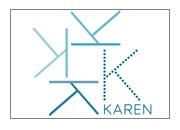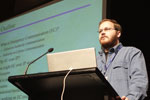

APOPS session
APOPS is the Asia Pacific Operators forum. It showcases content that is of wide interest to the Internet operations community.
Agenda
|
Realities of IPv6 IPSEC deployment Merike Kaeo, Double Shot Security This presentation details how IPsec could be used to protect IPv6 communications. It will provide an update of current IETF work in this area as well as enumerate practical deployment considerations. Some working configuration examples will also be shown. |
|
|
Experience sharing: IPv6 at the Hong Kong Internet Exchange Che-Hoo Cheng, Chinese University of Hong Kong HKIX is a multi-lateral peering (MLPA) exchange over a layer 2 infrastructure which also supports Bi-Lateral peering (BLPA). In 2004, HKIX began supporting IPv6 using dual-stack. To boost-strap IPv6 development in the region, HKIX will provide free IPv6 full transit with the help of a few transit providers. In this session, the speaker will share his experiences of running IPv6 at HKIX. |
|
|
IPv6 address architecture on P2P link Matsuzaki Yoshinobu, IIJ People usually assign a /64 or /126 IPv6 prefix for a P2P link. The difference between IPv4 P2P links, where a /30 or /31 is assigned, is that there are unused IPv6 global unicast addresses on the P2P link. If someone sends packets to these unused IPv6 addresses, these packets could be looped on the link. This has been discussed at the IETF (I-D.ietf-ipngwg-p2p-pingpong) and RFC 4443 about ICMPv6 was published in March 2006. In this presentation, I will describe the issue and possible solutions. |
|
|
What's happening with four-byte AS numbers? Geoff Huston, APNIC The remaining pool of available two-byte AS numbers is predicted to run out in early 2011. On 1 January 2009, the RIRs begin assigning four-byte numbers by default to networks requesting an AS number. This presentation reports on how ready the global Internet is for this change. |
|
| Break | |
|
The Day in the Life of the Internet project George Michaelson, APNIC A brief non-technical presentation on the Internet "Day In The Life" data capture exercise carried out in March of this year, and APNIC's investment in an ongoing DNS measurement framework. The APNIC data capture methodology, tools (derived from OARC) and the activity in DITL will be presented. |
|
|
RIPE NCC Information Services Mark Dranse, RIPE NCC |
|
|
IP emergency services Matt Lepinski, BBN In recent years, there has been significant work both in the IETF and other standards organizations (including IEEE, 3GPP, 3GPP2, and OMA) on enabling individuals in need of emergency assistance to use IP devices to initiate VoIP?? or real-time text sessions with local authorities that are able to dispatch emergency aid. In this presentation, I will give an update on standardization efforts in the area of IP emergency services, as well as to solicit input from the APNIC community to ensure that the eventual solutions meet their needs. |
|
|
DNS: report on security advisory Sam Sargeant, Modica Group In early July a security advisory was published that warned of a DNS cache poisoning vulnerablity that affected multiple resolver implementations. The issue was kept secret for some time while DNS software vendors patch their systems and worked towards a coordinated release. I plan to talk about DNS cache poisoning and the risks it presents. I'll also talk about the freshly published vulnerability and assess the impact to DNS operators. |
|
Speakers

Merike Kaeo |

Che-Hoo Cheng |

Matsuzaki Yoshinobu |

Geoff Huston |

George Michaelson |

Matt Lepinski |

Mark Dranse |

Sam Sargeant |
Session details
| When: | 27 August 2008, 14:00-17:30 |
|---|---|
| Where: | Hall C, Ground Floor, Christchurch Convention Centre |
| Chair: | Matsuzaki Yoshinobu |
| Sponsored by |
|---|

|

|

|

